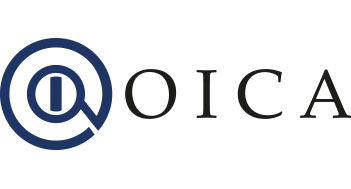What activities have the motor vehicle manufacturers taken to safeguard the minimum safety requirements for vehicles globally?
Intervention by Y. van der Straaten, OICA secretary general, at the 24 November 2023 United Nations World Sustainable Transport Day
Road safety is an interaction of various factors, and the safety design of the vehicles is only a small part of this equation.
Manufacturers are responsible for their vehicles. Manufacturers are men and women who develop, produce and sell vehicles for other men and women, and they want the product of their work to be safe.
Modern vehicles in developed markets are now much safer than before. But not all vehicles in the world are up to these high safety levels. Some designs, still offered for sale, may be outdated, and should be improved wherever possible. But we need an approach that applies to ALL actors, an approach that is controllable, that is practical, that is fair, and that is based on experience.
In the recent past, some appeals were made for a voluntary commitment by manufacturers to sell, all over the world, only vehicles meeting high, sometimes even very high safety standards. Such initiative has merit and can indeed push some individual manufacturers when needed; however, there are some facts to be considered. The auto industry is extremely competitive, with a very large number of players. It would therefore be virtually impossible to guarantee that such global commitment is respected by all manufacturers and their almost 100 million cars and trucks produced every year. Secondly and even more important, the main road safety problem is in low-income countries. Not considering affordability will therefore be counterproductive if consumers are in effect forced to keep their old and usually very poorly maintained vehicles longer than they should.
The solution that the auto industry proposes is based on the experience gained in most well-developed markets. Over the last decades, we have seen that vehicle legislation has dramatically improved vehicle safety.
At OICA, representing the global auto industry, we believe that the most efficient and pragmatic way to obtain, where needed, improvements also in low- and middle-income countries, is to put in place minimum legal requirements. These requirements should be based on the international experience of the UN 58 and 98 Agreements, or other well established equivalent alternatives.
This approach has multiple advantages. It creates a level playing field, because legal requirements equally apply to all, without exception. It can be controlled efficiently and put in place relatively easily.
The manifesto that OICA published in 2019 and updated in 2022 contains a list of proposed requirements for countries with inadequate or even non-existing legislation. It can be a useful tool for governments to control the safety of vehicles sold on their markets.
At OICA, we are convinced that this approach, based on regulation, will ensure that all vehicles sold in the various countries worldwide are tailored to the reality of their respective markets and needs. It is a pragmatic approach to offer safe, affordable, and sustainable mobility to all social classes.
Mobility is a key parameter of social well-being and of economic progress and cannot be limited to the “happy few”.
About OICA
The world association OICA was founded in 1919 and currently gathers 35 trade associations around the world, including all major automobile manufacturing countries in Europe, America, Africa and Asia. OICA is the only non-governmental car and truck manufacturers’ organization accredited to the United Nations and represents the technical interests of the global auto industry in international institutions and organizations.
The OICA activities contribute to the worldwide diffusion of technology, experience and know-how, to the benefit of all countries. OICA coordinates the global harmonization of vehicle regulations. The member countries are committed to the improvement of road safety and environmental protection, and they actively contribute to the global harmonization of technical regulations and standards. OICA also collects and publishes international statistics and coordinates the yearly calendar of Motor shows all over the world.
Contact: Yves van der Straaten
yvanderstraaten@oica.net
+33 (0)1 43 59 00 13
